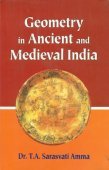Narayana Pandita, Nārāyaṇa Paṇḍita: 2 definitions
Introduction:
Narayana Pandita means something in Hinduism, Sanskrit, the history of ancient India. If you want to know the exact meaning, history, etymology or English translation of this term then check out the descriptions on this page. Add your comment or reference to a book if you want to contribute to this summary article.
India history and geography
Source: What is India: Inscriptions of the ŚilāhārasNārāyaṇa Paṇḍita (नारायण पण्डित) (fl. 1053 A.D.) is mentioned in the “Dive Agar plate of Mummuṇirāja”. Accordingly, “The illustrious King Mummuṇideva lays down the settlement for the learned Brāhmaṇas endowed with wisdom, who are prominent among the sixteen representatives (mahattarakas) residing at Āgara-dīpaka, in the presence of principal royal officers such as... the Purōhita (family-priest), the illustrious Nārāyaṇa Paṇḍita...”.
This copper plate (mentioning Nārāyaṇa Paṇḍita) was discovered at Dīve Āgar in the Śrīvardhana-tālukā of the Kolābā District in North Koṅkaṇ. It is dated on the fifth tithi of the dark fortnight of Āṣāḍha in the Śaka year 975, the cyclic year being Vijaya. Its object is to record a vyavasthā (settlement) in respect of the village Dīpakāgara together with its three hamlets, viz. Voritalī, Katila and Kalaija.

The history of India traces the identification of countries, villages, towns and other regions of India, as well as mythology, zoology, royal dynasties, rulers, tribes, local festivities and traditions and regional languages. Ancient India enjoyed religious freedom and encourages the path of Dharma, a concept common to Buddhism, Hinduism, and Jainism.
Languages of India and abroad
Sanskrit dictionary
Source: Cologne Digital Sanskrit Dictionaries: Aufrecht Catalogus CatalogorumNārāyaṇa paṇḍita (नारायण पण्डित) as mentioned in Aufrecht’s Catalogus Catalogorum:—guru of Rāmacandra Sarasvatī (Bālabodhinībhāvaprakāśa). Hall. p. 203.
--- OR ---
Nārāyaṇa paṇḍita (नारायण पण्डित):—Advaitakālāmṛta, vedānta.
--- OR ---
Nārāyaṇa paṇḍita (नारायण पण्डित):—Gītagovindaṭīkā, written by desire of Bhīṣidāsa, son of Lakṣmīdāsa.
--- OR ---
Nārāyaṇa paṇḍita (नारायण पण्डित):—Navaratnaparīkṣā. Bik. 708.
--- OR ---
Nārāyaṇa paṇḍita (नारायण पण्डित):—Pāṭīkaumudī jy. Sūcīpattra. 17.
--- OR ---
Nārāyaṇa paṇḍita (नारायण पण्डित):—Śivastuti (Paris. D 301 Iii)
--- OR ---
Nārāyaṇa paṇḍita (नारायण पण्डित):—son of Kṛṣṇa Paṇḍita: Jvaranirṇaya.
--- OR ---
Nārāyaṇa paṇḍita (नारायण पण्डित):—son of Likuci: Śivastuti.
--- OR ---
Nārāyaṇa paṇḍita (नारायण पण्डित):—son of Viśvanātha Paṇḍita: Piṣṭapaśukhaṇḍanamīmāṃsā.
--- OR ---
Nārāyaṇa paṇḍita (नारायण पण्डित):—son of Hitārtha Sūri:
—[commentary] on Ānandatīrtha’s Sadācārasmṛti. Bik. 449. Bhr. 618.
--- OR ---
Nārāyaṇa paṇḍita (नारायण पण्डित):—Nṛpodanta.
--- OR ---
Nārāyaṇa paṇḍita (नारायण पण्डित):—son of Kṛṣṇa Paṇḍita: Vaidyavallabhaṭīkā.
--- OR ---
Nārāyaṇa paṇḍita (नारायण पण्डित):—son of Hitārtha Sūri (Bik. 449). According to Stein 107 he was a son of Viśvanātha:
—[commentary] on Ānandatīrtha’s Sadācārasmṛti.
--- OR ---
Nārāyaṇa paṇḍita (नारायण पण्डित):—son of Trivikrama: Pārijātaharaṇa kāvya.
--- OR ---
Nārāyaṇa paṇḍita (नारायण पण्डित):—son of Viśvanātha, pupil of Bhaṭṭa Nīlakaṇṭha: Piṣṭapaśumīmāṃsākārikā.
Sanskrit, also spelled संस्कृतम् (saṃskṛtam), is an ancient language of India commonly seen as the grandmother of the Indo-European language family (even English!). Closely allied with Prakrit and Pali, Sanskrit is more exhaustive in both grammar and terms and has the most extensive collection of literature in the world, greatly surpassing its sister-languages Greek and Latin.
See also (Relevant definitions)
Partial matches: Narayana, Pandita.
Starts with: Narayana pandita dharmadhikarin, Narayana panditacarya.
Ends with: Lakshminarayana pandita.
Full-text (+85): Shabdamanjari, Shabdabhushana, Likuci, Advaitakalamrita, Navaratnapariksha, Bandhyatvakarakopadravaharavidhi, Narayana pandita dharmadhikarin, Pishtapashukhandanamimamsa, Nripodanta, Pishtapashumimamsa, Shrutiranjani, Narayanapandita, Sadacarasmriti, Shivastuti, Mahipati, Narayana, Parijataharana, Pralapaka, Antardahardhita, Jihvakakranta.
Relevant text
Search found 3 books and stories containing Narayana Pandita, Nārāyaṇa paṇḍita; (plurals include: Narayana Panditas, Nārāyaṇa paṇḍitas). You can also click to the full overview containing English textual excerpts. Below are direct links for the most relevant articles:
Chaitanya Bhagavata (by Bhumipati Dāsa)
Verse 3.8.36 < [Chapter 8 - Mahāprabhu’s Water Sports in Narendra- sarovara]
Introduction to chapter 8 < [Chapter 7 - Pastimes in Śrī Gadādhara’s Garden]
Reviews < [November-December 1933]
The Buddhist Philosophy of Universal Flux (by Satkari Mookerjee)
Chapter IX - The Mīmāṃsā Theory of Soul < [Part I - Metaphysics]
Related products
